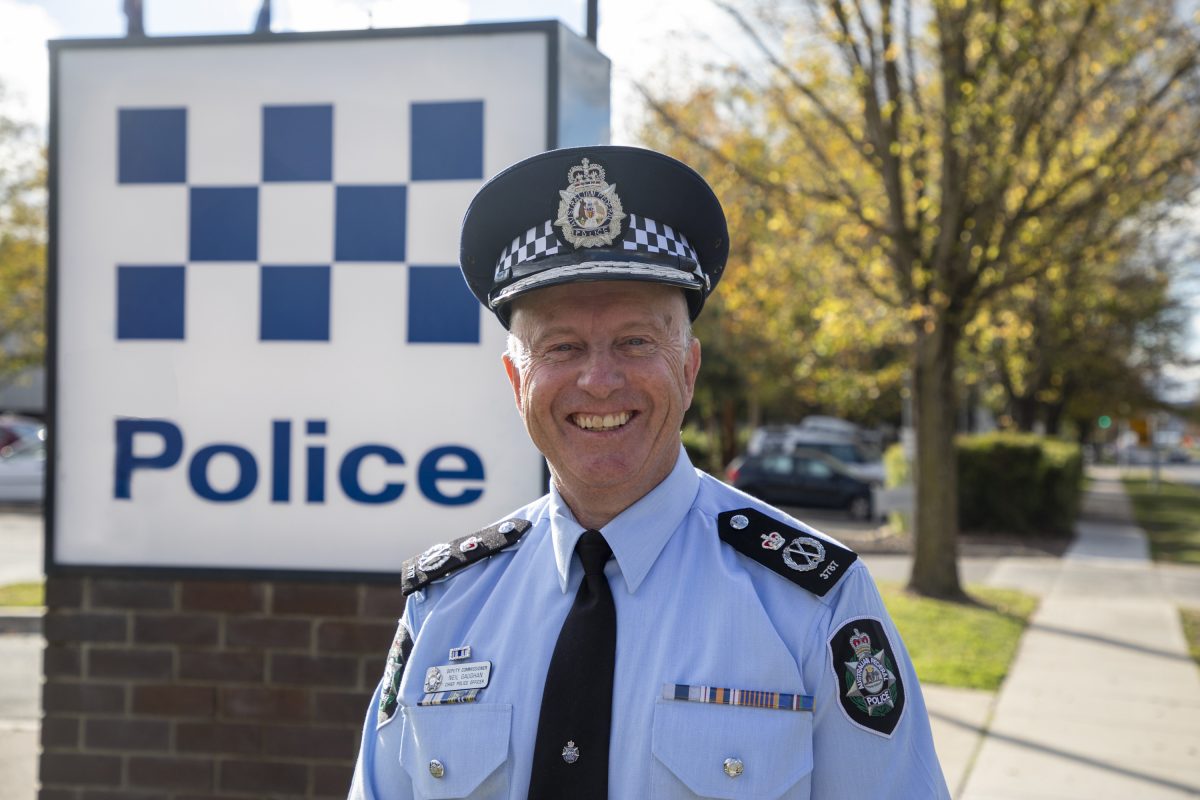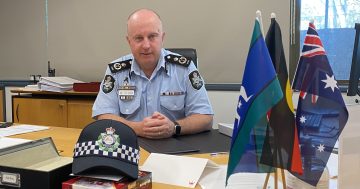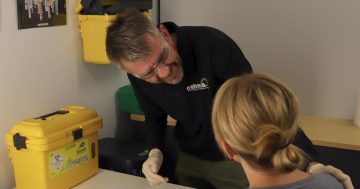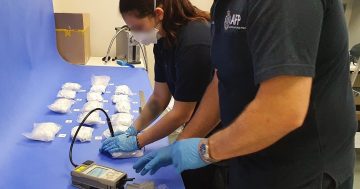
Deputy Commissioner Neil Gaughan cautiously welcomes harm minimisation measures to deal with drug use. Photo: Supplied.
Deputy Commissioner Neil Gaughan has a fair bit on his plate.
The lifelong ACT police officer is concerned about how drug decriminalisation will work, about raising the age of criminal responsibility and the small group of families in the Territory responsible for a disproportionate part of the city’s criminal activity.
But far from being an advocate of harsher penalties, the ACT’s Chief Police Officer – the latest in our Canberra 2030 series about the city’s future – says there’s plenty of sense in harm minimisation measures that recognise the social and psychological causes of crime.
Because connections between crime, drug use and mental health issues are so strong, his greatest concern is that as the ACT proceeds down the path towards liberalisation, there simply won’t be enough support services in Canberra to pick up the pieces of users’ lives, remedy the underlying issues and make the changes work.
Over the next 12 months, the ACT will go further than anywhere else in Australia to decriminalise possession of heroin, methamphetamines and other drugs of dependence.
“I’m worried we’re almost enabling addiction and the criminality that’s often behind that,” he says.
“If you have to buy eight points of meth, it’s going to cost you $800. How are you getting the money for that? Potentially organised crime will take advantage of the situation. They’re only worried about profit, they’re not worried about anything else.
“If it’s 2 o’clock in the morning, there needs to be somewhere we can send these people to, or support we can give them right then because at 8 o’clock the next day, they’re not going to want that support. They just want another hit of meth. So it needs to be a 24/7 response capability.”
Many of the CPO’s concerns centre around the effects of methamphetamine, its ready manufacture and availability and what that presages for the city’s future. He’s been a Canberra police officer for a long time, serving through Canberra’s heroin epidemic in the 1990s when the Territory’s drug deaths reached an all-time high.
Drug overdoses are nothing new to anyone who policed through that era, and although many people can now be revived with a shot of NARCAN, the deputy commissioner says the shock of dealing with someone dead or dying at your feet never loses its horror.
“What we’re doing at the moment isn’t working and this is one reason why I’m supportive,” he says.
“The way we’ve been dealing with this over the last 80 years of prohibition didn’t work with alcohol. I’m not convinced it’s working with drugs, so we need to give [decriminalisation] a crack.”
Deputy Commissioner Gaughan’s position is also informed by observing how repeated imprisonment has affected the ACT’s relatively small cohort of repeat offenders. Canberra’s small size and single jail means that many offenders know each other well, deepening the cycle of imprisonment from generation to generation.
Significantly more women are now involved in violent crime than in the past, as are younger offenders. The Deputy Commissioner worries that moves to raise the age of criminal responsibility, while well intended, mean that crimes committed by 12 and 13-year-olds may not be dealt with as seriously as they should.
That said, he doesn’t think our sentencing is particularly light by national standards, although he’s more critical of bail decisions that, he thinks, fail to protect the community adequately.
“I think that magistrates and judges have a really, really difficult job and there’s a lot of emotion around it,” he says.
“But what we’re seeing with these men and women that are involved in recidivist activity is that they continue to do it because there’s the addiction issue. They’re not getting the treatment they need.
“It’s sad that my guys are now arresting kids of the grandfathers I arrested, really sad. [Police] are compassionate people, and we see how sad it is that there are kids in these situations that we can’t fix.”
If there’s a single message he has for the rapidly growing Canberra community, it’s the need to work together with police.
“We are here to work with the community, we are part of the community – they’re part of the fundamental principles of policing going back to the 1880s. I think we’ve just got to get better at selling that message,” he says.





















